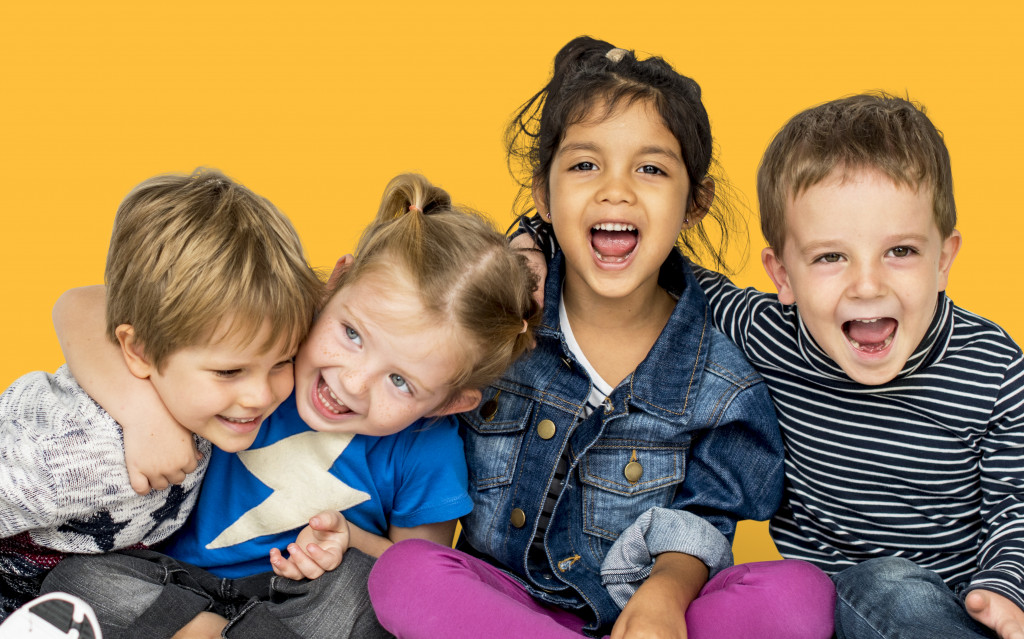- Social skills are essential for a child’s development and set them up for success in the future.
- Parents can help children develop social skills by participating in activities that foster social interaction.
- Modeling good behavior, encouraging cooperation, and practicing social scenarios are all effective ways to teach kids to interact positively.
- Your child can become an expert communicator with enough practice and guidance from parents or caregivers.
For children to develop into confident and well-adjusted adults, they must learn to interact positively and cooperatively with other people. Parents and caregivers must encourage their children to build strong social skills. Unfortunately, many parents struggle to know when and how to help their kids become more socially aware.
The Importance of Social Skills
Social skills are essential for a child’s development. They help children make and maintain relationships, learn to express themselves, and become comfortable in different social situations. Good social skills also set up children for success in the future by helping them build strong friendships and develop healthy habits.
What are the Benefits?
There are numerous benefits to helping children develop strong social skills. These include the following:
Social Skills Help Kids Develop Healthy Habits
Good social skills help kids learn to handle their emotions, express their feelings, and develop relationships with others. Through these experiences, kids can learn about empathy and respect for other people’s feelings.
This helps them develop healthy habits—like being kind to others—that will stay with them for life. Over time, these habits will help kids become successful adults with meaningful relationships with those around them.
Fostering Friendships

Having good social skills can also help kids make friends more easily. Knowing how to talk to people—both adults and other children—without feeling intimidated or uncomfortable is a great way of making new friends.
Making friends allows kids to form trusting relationships where they feel safe expressing themselves without fear of judgment or rejection. Having such close relationships is an excellent way for kids to build confidence as individuals and better understand themselves as part of a larger community.
Nurturing Your Child’s Social Skills
As a parent, it is your responsibility to help your child develop their social skills. Here are some tips that can help you do just that:
Participate in Activities That Foster Social Skills
Activities such as sports or art classes allow children to engage with others while developing valuable social skills such as communication and teamwork. You can do this by enrolling them as early as possible in preschool centers where they can learn how to share and cooperate with other children. Educators and experts highly suggest that children should get involved in activities that involve working with peers, thus, giving them a chance to practice their social skills.
Modeling Good Social Behaviors
The best way to teach your child good social behaviors is by modeling them yourself. When your child sees you interacting positively with others, they will start to gain an understanding of proper social etiquette. It is essential to also talk openly with your child about what constitutes good behavior when interacting with others so that they can internalize these concepts.
Encourage Cooperation and Problem Solving Rather than Punishment

It can be easy for parents or caregivers to resort to punishment to teach children about acceptable behavior, but it’s important to remember that punishment only serves as a temporary deterrent; it does not teach them how to interact appropriately with other people.
Instead, focus on encouraging cooperation between siblings and peers and problem-solving techniques such as listening carefully, expressing their feelings calmly, offering solutions instead of attacking one another, etc.
Practice Social Scenarios
It may feel awkward for some parents, but acting out various scenarios with your child can be a great way to teach them how to react in different social settings. Have them practice responding to specific situations, such as introducing themselves to a new person or resolving conflicts with friends without yelling or name-calling. This can help your child develop the confidence to handle real-life social situations. Practicing these scenarios will give your child the skills to interact successfully with others.
Final Thoughts
Helping your kids develop strong social skills is essential if you want them to become confident adults who can work cooperatively with others. While it may take time for them to learn all the necessary skills, there are things you can do now – like modeling good behavior yourself, encouraging cooperation rather than punishing bad behavior and participating in activities that foster social interaction – which will help them on this journey. Your child can become an expert communicator with enough practice and guidance from parents or caregivers!




